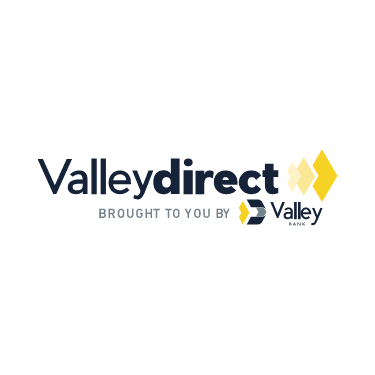Making money daily sounds like a dream come true, but it’s possible if you know how to invest. The best strategies include diversifying your investments to include less risky investments and more risky investments to get the highest possible return.
Diversifying your efforts between fixed and variable returns is the key to the largest returns. Give yourself some fixed or ‘for sure’ opportunities and uncertain ones that pay more.
This doesn’t mean you’ll receive a payout daily. Instead, your investments grow daily, giving you a significant value to withdraw or sell when the time comes. Making money daily requires plenty of patience, as sometimes you won’t see the fruits of your labor for months or even years.
9 Ways Invest and Make Money Daily
So how do you invest and make money daily? These top nine ways can help you reach your goals. Pick and choose among the preferred methods, and don’t forget to diversify to maximize your earnings and reduce your losses.
- Micro-Investing Apps
- Online Businesses
- Real Estate
- Robo-Advisors
- Stocks & ETFs
- Fixed-Income Investments
- Peer-to-Peer Lending
- High Yield Savings Accounts
- Cryptocurrency
1. Micro-Investing Apps
Micro-investing apps live up to their name. You can invest small amounts of money, sometimes even spare change. You might not think it’s much, but the earnings compound when you invest even small amounts daily. It’s all about consistency.
Acorns is an excellent app for this because it rounds up each purchase to the nearest dollar and invests the spare change. Think about how often you use your debit or credit card, and you’ll quickly see how easily the earnings can climb.
M1 Finance is a super finance app that offers everything, including micro-investing. They require only a $100 balance to start investing, and you can buy fractional stock shares with as little as $1. In addition to micro-investing, you can borrow personal loans, invest on margin, earn cash back with an M1 credit card, and more.
Pros
- Easy to start investing (even with pocket change)
- Low fees
- Opportunities to upgrade to more robust accounts
Cons
- It takes a long time to see the results
- Fees can eat up your profits
- You may not invest enough
2. Online Businesses
Starting an online business is a great way to make money daily; however, it requires a lot of work.
This isn’t a passive income opportunity, but your efforts can help you earn money daily. Some opportunities, like blogging and affiliate marketing, can become somewhat passive over time after you grow your audience and begin making a daily income from commissioned sales.
Ways to invest in online or small businesses include:
- Influencer marketing – You can sell sponsored spots on your social media pages, such as TikTok or Instagram, and make money daily from your efforts.
- Display ads – You can park display ads on your website or blog. You then earn a commission each time a viewer clicks on them and makes a purchase.
- Selling products or services – You can easily set up an e-commerce store, selling products or services, and marketing on social media, Google, and other platforms.
- Create a course – You can share your knowledge and skills in a class you sell online. This is a form of passive income because you do the work once and can sell the course repeatedly.
Most of these opportunities require little to no investment upfront except your time and effort. To get noticed as an influencer or to grow your blog audience, you must know how to market and get views. Once you have the views, you can increase your sales and daily earnings when people purchase from your ads or buy your own products or services.
Pros
- You can start almost any type of business or be an influencer for most things
- Little investment is required upfront
- Ability to be as creative as you want
Cons
- It could take a long time to see sizeable (or any) earnings
- It requires a lot of work on your part
- Earnings are unpredictable
3. Real Estate
Investing in real estate is one of the best ways to make money daily. Real estate is a hedge against inflation, so it’s a great investment to have in your corner when trying to grow your earnings.
You don’t need a lot of capital to invest in real estate as most people think. Of course, if you want to buy properties to rent or fix and flip, you’ll need more capital, but there are other ways to invest in real estate too.
Even if you decide to invest in real estate and have little capital, you can leverage your investment with mortgage financing; just make sure it makes sense financially.
Ways to invest in real estate to make money daily:
- Landlord – As a landlord, you own and run the property. You manage the tenants, the home’s maintenance and repairs, collect rent, and manage vacancies. Your earnings come from monthly rent plus other charges, such as security deposits, laundry fees, or other amenities.
- Buy and Flip – Buying and flipping a property earns you profits faster because you don’t hold onto the property. However, it requires more work because you must buy a rundown (undervalued) house and fix it to make a profit. You can then sell it for a profit with the right timing. Most fix-and-flip investors turn properties over within six months.
- Real Estate Debt – Investing in real estate debt is the other side of investing in real estate. In this case, you act like the lender, lending other real estate investors funds to purchase, manage, and sell properties. Your daily income is from the interest charged on the loan.
- REITs – Real estate investment trusts are an indirect way to invest in real estate. Instead of owning the property yourself, you invest in a real estate company that purchases, manages, and sells commercial property. You may receive monthly payments from rent or interest, or in another frequency, depending on the company’s preferences.
Pros
- Provides a hedge against inflation
- You can leverage your investment by borrowing a mortgage
- Open to investors with minimal capital
Cons
- No guarantee real estate will appreciate
- Investing in real estate debt can put you at risk of default
- Acting as a landlord or buying fixes and flips take a lot of work
4. Robo-Advisors
Robo-advisors are computer advisors helping you reach your financial goals. With some robo-advisors, you never talk to a human advisor. Instead, you handle everything on the app, dealing with a ‘robot.’
It might sound weird to invest using a robo-advisor, knowing you cannot talk to anyone, but the algorithms know what portfolios will work for you based on your questions to their answers.
Each robo-advisor is different, but on average, here’s what they’ll ask:
- How much capital are you investing?
- What are your short and long-term goals?
- What is your risk tolerance?
- How long until you need to reach each goal?
Some of the popular robo-advisors include Betterment, Wealthfront, and Robinhood. Each platform works differently but has the same premise. You choose a prebuilt portfolio, and the robo-advisor handles your investments, including reallocating the portfolio when the market knocks it off course.
Some robo-advisors also offer a cash management account, paying APYs similar to what you’d receive in a high-yield savings account.
You may need a small upfront investment to begin, but the more money you invest, the higher your chances of earning. You can set up your robo-advisors to automatically reinvest dividends (DRIP) or withdraw dividends as cash when you earn them.
Your earnings from robo-advisors come from stock dividends, interest from bonds, and capital gains when the robo-advisor sells some of your assets for a profit.
Pros
- Offers a hands-off way to invest
- Handles all the difficult questions and decisions about what to invest in, when to sell, etc.
- Less expensive than hiring a human advisor
Cons
- You’re limited to the prebuilt portfolios they created
- It may seem impersonal when you can’t talk to a human
- It can feel challenging not to have control of your investments
5. Stocks and ETFs
Stocks and ETFs are a great addition to any portfolio. They are riskier investments, so you should always diversify to avoid tremendous losses. To diversify, you need to invest in different sectors, typically unrelated ones, so one bad blow doesn’t affect everything in your portfolio.
You can invest in stocks individually using an online or human advisor or choose ETFs (exchange traded funds) which are baskets of stocks that are already diversified.
To make money on stocks or ETFs, you must sell the assets for more than you paid for them. Stocks and ETFs usually have an average return of 10% if you can invest for the long term. The market can be volatile, so it’s essential to have a long-term plan and not invest the capital you need soon.
Charles Schwab and Fidelity are two popular brokerages to buy stocks or ETFs through.
We also recommend moomoo for stock and ETF traders. Founded in 2018 in Silicon Valley, the investment platform offers commission-free trades, in-depth research, educational resources, and an interactive community.
They’ve recently enhanced their ‘Cash Sweep’ offering (see our moomoo review for full details), now providing an impressive 5.1% return to new users, which is one of the highest yields in the entire brokerage industry.
Pros
- You can invest in companies you believe in
- It’s easy to diversify your portfolio across many sectors
- Many $0 commission brokers exist, especially for ETFs
Cons
- Stocks are risky and can lose value fast
- It usually takes time to see returns
- You must know what you’re doing, or you could lose everything
6. Fixed-Income Investments
Fixed-income investments are assets with a predetermined return. You know when you invest exactly how much you’ll get. Depending on the type of investment, you may earn interest monthly, quarterly, or annually.
You can choose to keep the interest in the account or withdraw it and use it as income. Keeping the funds in the account is the best way to grow your balance continually.
Common fixed-income investments include:
- CDs – Certificates of deposit are timed deposits. You invest your money for a predetermined amount of time, such as three months, one year, or five years. Choose the term you can afford to leave your funds untouched. If you withdraw funds prematurely, you could pay a penalty.
- Money market accounts – MMAs are deposit accounts that cross between savings and checking accounts. They pay high interest rates like high-yield savings accounts, but you can write checks against the balance up to six times monthly.
Pros
- Offers liquidity should you need it
- You can predict your earnings
- Easy to invest or open an account at in-person and online banks
Cons
- Returns are lower because they are fixed
- You may have to tie up your funds for a while for a CD
- Each account has specific rules
7. Peer-to-Peer Lending
Peer-to-peer lending is a way to invest in other consumers who need funds but may not qualify for a traditional bank loan. The returns for P2P lending vary based on the platform and the borrower’s risk.
P2P platforms rate borrowers based on their credit score, income, asset, and employment. The higher the consumer’s rating, the lower the interest rate you’ll earn, and vice versa. Many platforms, such as Prosper, allow you to invest as little as $25 per loan, making it easy to diversify your funds.
It’s important to research each loan option and know the timeline and potential earnings to decide. Try mixing up your investments in low-risk/low-interest rate loans with high-risk/high-interest rate loans.
There’s no guarantee you’ll earn the full amount because borrowers can default, but when they don’t, you may receive your earnings monthly, quarterly, or annually, depending on the platform’s terms.
Pros
- May earn higher interest rates than other investments offer
- Provides consistent returns
- Low barrier to entry
Cons
- Borrowers may be high-risk
- All investments must go through a platform, which can result in technology issues
- There may be fees
8. High Yield Savings Accounts
High-yield savings accounts pay 3X to 10X the national average APY on savings. You’ll find these accounts online at banks like Capital One 360 and Ally Bank. These banks can offer higher APYs because they don’t have a brick-and-mortar location to manage.
You must be comfortable handling your banking online, although most banks with HYSAs work with a large ATM network, providing access to your funds through them.
HYSAs usually pay interest monthly, and you don’t have to do anything but leave it in your account to continue allowing your interest to compound.
Pros
- Most banks are FDIC-insured, so your funds are safe
- Your funds are completely liquid
- You can bank 24/7
Cons
- You will likely have a limit on withdrawals and transfers
- There’s an opportunity cost for higher-yielding investments
- Some banks charge fees
9. Cryptocurrency
Cryptocurrency is the latest way to invest and make money daily. Common cryptocurrency investments include Bitcoin and Dogecoin. Cryptocurrency is a secure virtual currency. Investing in it requires a virtual wallet and a place to purchase crypto.
Common places to purchase crypto are Coinbase and eToro. Once you purchase it, you can store it in your virtual wallet or purchase items at retailers that accept it. Unlike many of the other investments on this list, crypto is fairly new and somewhat unpredictable, so be sure to keep that in mind and diversify your portfolio when including it.
Pros
- Protects against inflation
- Transfers within minutes
- It’s decentralized
Cons
- High risk of fraudulent activity
- There are no refunds or cancellations
- They are extremely volatile
Investing Tips
So how do you decide where to invest to make money daily?
Here are some investing tips to help you start.
- Fully research your options – Explore all options to ensure you choose the right investments. Look at the pros and cons, fees, minimum investment requirements, and how you get paid. Make sure they align with your goals and risk tolerance.
- Get professional advice – Consider speaking to a financial professional about the right ways to invest and make money daily. Discuss your goals, timeline, and risk tolerance to ensure they provide solid advice.
- Try more than one – Don’t put all your money into one investment. Instead, use a couple of options and diversify your funds. This helps you avoid a total loss when one market falls.
- Use an investment calculator – An investment calculator can help you see how your earnings will compound and what it will take to reach your financial goals.
FAQs
Knowing how to invest and make money daily is key to growing your earnings. We’ve answered a few frequently asked questions about this topic below:
How Much Do I Need to Start Investing?
Many investments require very low starting limits. Some even have a $0 minimum requirement. Of course, you must invest money to make money, but the accounts that don’t require a minimum investment have a lower barrier to entry, allowing you to invest sooner.
What Investment Has the Highest Daily Return?
Stocks typically have the highest daily return if you invest in them long-term. They have a 10% average return every 10 years, which is much higher than most other investments. However, the other investments provide diversity, so you don’t lose everything at once.
Is Crypto a Safe Investment?
Crypto is still relatively new and unpredictable. Its market is volatile, and you should only invest funds that you can stand to lose.
What Does It Mean to Invest In Yourself?
It sounds funny to invest in yourself, but you are your most significant investment. Investing in yourself increases your skills and knowledge, enabling you to make more money. For example, if you research stock investing and become a stock trader, you invest in yourself to increase your potential earnings.
What Is Snowball Investing?
Snowball investing portrays the importance of dividend reinvesting. Each time you get paid a dividend and purchase more stock, you grow your ‘snowball.’ That larger snowball now compounds more than the original snowball, and if you keep the effect going, you’ll eventually have a giant snowball.
Can I Invest and Make Cash Daily?
Knowing how to invest and make money daily is essential. With the right steps, you can grow your net worth just by investing in the right products that pay daily. You might not receive the cash daily, but your earnings will continue growing and compounding to help you reach your financial goals.






No comments yet. Add your own